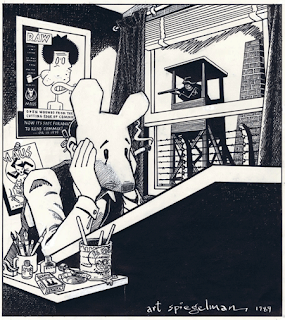HOW DO YOU LIKE THEM APPLES??!!
As you
know, I love to tell you stories, so I decided to fill this post with a few of
my latest interests. I have been reading a lot about popular science lately, especially
popular math and physics and I stumbled upon many curiosities. One of them involves
a popular incident related to our current situation.
I’m sure
you’ve all heard about Newton’s apple. For those who haven’t, this is how the
story goes: due to the plague outbreak in London (this is the bit that
resembles our lockdown further described in previous posts), Isaac Newton
retired to his family home in Woolsthorpe Manor.
While
sitting in the garden, Newton was pondering on the secrets of the universe
when, all of a sudden, an apple fell on his head and had an Archimedes-like
eureka moment. Newton related the falling of the apple to the moon and other
celestial bodies, finally reaching his famous gravitational laws.
As we can
suspect, the whole incident may very well be apocryphal or, at least, an
embellishment of a true anecdote. However, it seems extraordinary that a person
almost four hundred years ago, in a setting similar to ours, managed to unravel
one of the most incredible mysteries of the universe. All in all, this shows us
that, no matter how adverse the circumstances, our imagination is the key that
will unlock the doors to new frontiers and horizons.
To finish
up, let me recommend you the book I just finished, Love and Math, by Edward
Frenkel, a fascinating read on which you will be able to find more details
here.
And by the
way, talking about apples, I leave you a clip of one of my favourite movies
mixing fruit, maths and more!
Como sabedes,
encántame contarvos historias, así que o post de hoxe vai mesturar algúns dos
meus intereses recentes. Ultimamente estou a ler moita divulgación científica,
especialmente sobre matemáticas e física, atopándome polo camiño con moitas
curiosidades. Precisamente unha delas ten moitos paralelismos coa nosa
situación actual.
Seguro que todos ouvistes
falar da mazá de Newton. Para aqueles que non a coñecen, máis ou menos así foi
o conto: durante a praga de Londres (este é o detonante que tanto se asemella
ao noso encerro e que xa describimos en publicacións anteriores), Isaac Newton
retirouse á súa finca familiar en Woolsthorpe Manor.
Sentado no
xardín, Newton estaba a meditar sobre os secretos do universo cando, de súpeto,
caeulle unha mazá na cabeza e tivo o seu momento eureka como xa o tivera
Arquímedes hai centos de anos. Newton relacionou a caída da mazá coa lúa e
outros corpos celestiais, finalmente chegando ás súas famosas leis da
gravitación.
Como podemos
sospeitar, o incidente poder ter sido unha invención apócrifa ou, polo menos, unha
anécdota con moito adorno. Porén, parece extraordinario que hai case
catrocentos anos, nun marco parecido ao noso, unha persoa conseguise explicar
un dos máis incribles misterios do universo. En resumo, isto nos mostra como,
sen importar como de adversas sexan as circunstancias, a nosa imaxinación é a
chave que abrirá as portas a novas fronteiras e horizontes.
Para rematar,
recoméndovos o libro que veño de ler, Amor e matemáticas, de Edward Frenkel,
unha lectura fascinante sobre a que poderedes descubrir máis cousas aquí.
E, por certo,
falando de mazás, déixovos unha escena dunha das miñas películas favoritas que combina
froita, mates e moito máis!











Comentarios
Publicar un comentario